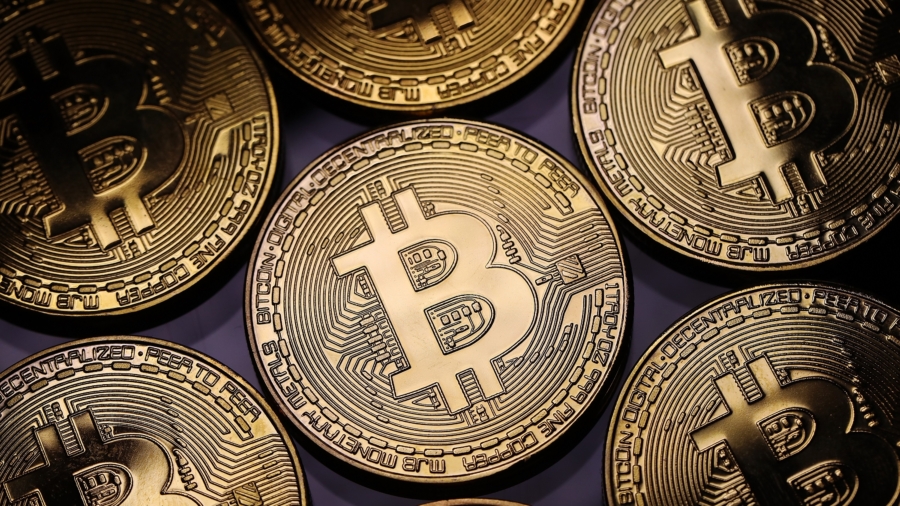After making a significant investment in Bitcoin last year, Tesla Motors sold 75 percent of its holdings in the second quarter, the company confirmed Wednesday.
Tesla converted $936 million worth of Bitcoin into fiat currency and added the cash to its balance sheet, according to the electric vehicle maker’s earnings release (pdf). Tesla’s crypto holdings total approximately 10,500 coins, or about $218 million, down from $1.2 billion.
This is the first time that Tesla has touched the peer-to-peer decentralized virtual token since the first quarter of 2021. At the time, the tech giant acquired $1.5 billion in Bitcoin, sending prices through the roof. Tesla would later trim 10 percent of its holdings for $272 million in cash (pdf).
The latest decision was made in response to the growing uncertainties surrounding China’s lockdowns amid COVID-19 outbreaks, says CEO Elon Musk.
“We are certainly open to increasing our Bitcoin holdings in future, so this should not be taken as some verdict on Bitcoin,” Musk said in an earnings call with analysts. “It’s just that we were concerned about overall liquidity for the company, given COVID shutdowns in China.”
He added that the company had not sold any of its Dogecoin positions.
Bitcoin prices tumbled 6.45 percent, to $22,584, on Thursday, while Dogecoin is down nearly 9 percent, to $0.0683.
The cryptocurrency market has recently enjoyed a relief rally, buoyed by investors optimistic that the Federal Reserve will adopt a less-aggressive approach to interest rates at this month’s Federal Open Market Committee (FOMC) policy meeting. The central bank’s tightening efforts have applied exceptional pressure on risky assets, including cryptocurrencies.
Although Bitcoin has plunged 53 percent year to date, it has advanced nearly 9 percent over the last month.
“What was less encouraging in the Tesla report is the update regarding its Bitcoin holdings,” said Ipek Ozkardeskaya, a senior analyst at Swissquote Bank, in a morning note. “Tesla sold a big chunk of Bitcoin to add near a billion dollars to the company’s balance sheet. No wonder the news reversed the positive momentum and sent Bitcoin back below the [$23,000] mark yesterday.”
Tesla turned bullish on Bitcoin and accepted it as a payment method for its models.
However, after only a few months of this buying strategy, the company suspended vehicle purchases using Bitcoin over concerns “about rapidly increasing use of fossil fuels for Bitcoin mining and transactions, especially coal.” But Tesla reaffirmed its commitment to cryptocurrency.
“Tesla will not be selling any Bitcoin, and we intend to use it for transactions as soon as mining transitions to more sustainable energy,” Musk wrote in a tweet. “We are also looking at other cryptocurrencies that use <1% of Bitcoin’s energy/transactions.”
The news comes soon after a report from Barclays analyst Brian Johnson, who said that Tesla could face up to a $460 million impairment charge should the business choose not to sell any of its Bitcoin holdings. By selling most of its holdings, Tesla cut its impairment charge for keeping the intangible asset on its books. Bitcoin’s value is required to be written down when it tumbles, but it is restricted from being listed as a gain unless it is sold.
Other Tesla Second Quarter Notes
Tesla revealed that it is still contending with a plethora of supply-chain challenges due to the coronavirus pandemic. In addition to inflationary pressures, Tesla is dealing with shortages of car parts and semiconductor chips, resulting in its global vehicle inventory falling to three days’ worth of supply, down from four days in the first quarter.
Musk warned that customers buying a car now would face a longer wait time, and they might not receive their orders until sometime next year.
“Production is resuming at limited levels, and we’re working to get back to full production as quickly as possible,” said Tesla CFO Zachary Kirkhorn. “It seems likely that we’ll be able to produce one and a half million cars this year.”
On the subject of autonomous vehicles, Musk cautioned that developments in this sphere are taking longer than he had initially hoped.
“With respect to full-self driving, of any technology development I’ve ever been involved in, I’ve never really seen more kind of false dawns where it seems like we’re going to break through but we don’t,” Musk told analysts.
Despite these setbacks, the company topped market estimates in the period ended March 31. Tesla posted $18.76 billion in revenues, compared to the projected $17.80 billion. Earnings per share came in at $3.22, higher than the forecast of $2.26. It also reported an 87 percent year-over-year increase in automotive revenue, climbing to $16.86 billion. Automotive gross margins also hit an all-time high of 32.9 percent, helping Tesla enjoy a gross profit of $5.54 billion in this primary segment.
Tesla shares rose 7.5 percent on Thursday, testing $800. Year to date, the stock has dropped 33 percent.
From The Epoch Times

